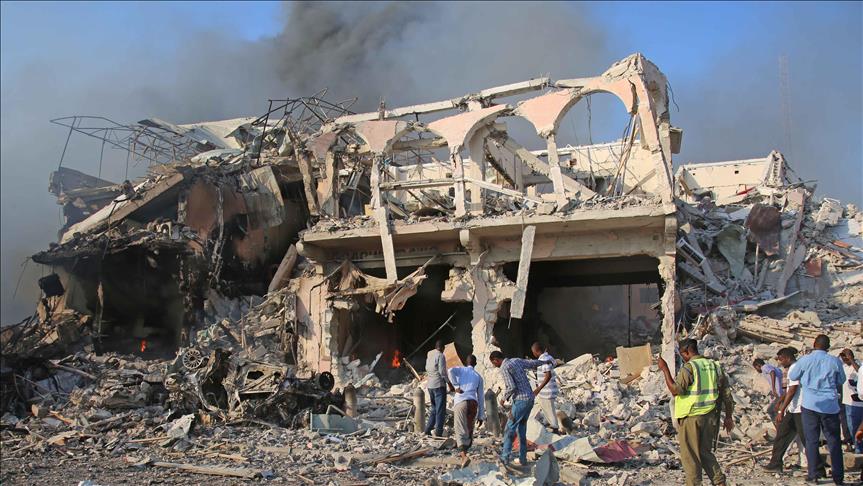 Scene of a massive explosion is seen in the capital Mogadishu, Somalia on October 14, 2017.
Scene of a massive explosion is seen in the capital Mogadishu, Somalia on October 14, 2017.
By Hassan Isilow, Felix Nkambeh Tih
JOHANNESBURG
The year 2017 has been a tough one for the African continent, with terrorism incidents, civil wars
Apart from the negative developments, there was hope and optimism in some countries especially those where elections were held peacefully.
In January, Gambia's former President Yahya Jammeh, who had been in power since 1994, was forced to leave office after he lost the election to Adama Barrow.
At first, Jammeh accepted the defeat but later attempted to cling on to power. The Economic Community of West African States (ECOWAS) had to intervene in the matter after which Jammeh left the country into exile in Equatorial Guinea.
In September, Kenya’s Supreme Court made history by
This was the first time such a judgment had been made on the continent. The ruling was celebrated across Africa as a sign of judicial independence.
Kenyatta again won the new elections amid a boycott of polls by his rival Raila Odinga.
In November, Zimbabwean President Robert Mugabe, who had ruled his country for 37 years, resigned following pressure from the military, protesters and his own ruling Zimbabwe African National Union-Patriotic Front (ZANU-PF) party.
The military took over power from Mugabe, 93, and placed him under house arrest after he had sacked his Deputy Emmerson Mnangagwa.
Grace Mugabe, 52, was planning to succeed her husband Mugabe but the military and the party veterans did not approve.
Celebration on Mugabe's resignation
Zimbabwean’s celebrated the news of Mugabe’s resignation on the streets of the capital Harare. Mnangagwa became
In August, Rwandan President Paul Kagame won elections for the third time in a
In December, Uganda’s National Assembly approved a constitutional change, which will allow President Yoweri Museveni to run for a sixth term in office.
Previously, the country’s constitution had barred people above the age of 75 from contesting for the presidency. But 73-year-old Museveni mobilized support to have the law changed.
Since 1986, his critics accused him of suppressing the opposition and allegedly rigging the elections.
Meanwhile, rights groups have blamed the Cameroonian security forces for using excessive force on
Many protestors have been killed by police and several injured since protests begun late 2016 over allegations that English-speaking people were being excluded from major civil service jobs.
Lawyers in the English-speaking regions are also opposed to the hiring of French-speaking people as court workers.
Cameroon, which was colonized by both
Terrorism
Incidents of terrorism, civil wars
In October, over 500 people were killed and more than 300 injured in the deadly truck bombing outside a busy hotel in
The al-Qaeda linked Somali-based terrorist group al-Shabaab did not claim responsibility for the attack, although it has been responsible for many similar incidents.
Turkey sent an aircraft to airlift some of the victims to the country for medical treatment.
In August, more than 500 people were killed in floods and a mudslide in Freetown, the capital of Sierra Leone. The government said more than 800 people were missing due to rain-related incidents.
Nigeria-based terrorist group Boko Haram continued to wreak havoc in the country’s north, targeting markets, churches, schools
Dozens of people were also killed in South Sudan during an ongoing conflict between the government and rebels loyal to former Deputy President Riek Machar.
Conflicts also continued between government forces and rebels in the
Experts believe that 2018 will bring hope to Africa especially in the economic sector as some countries are starting to export manufactured goods.








